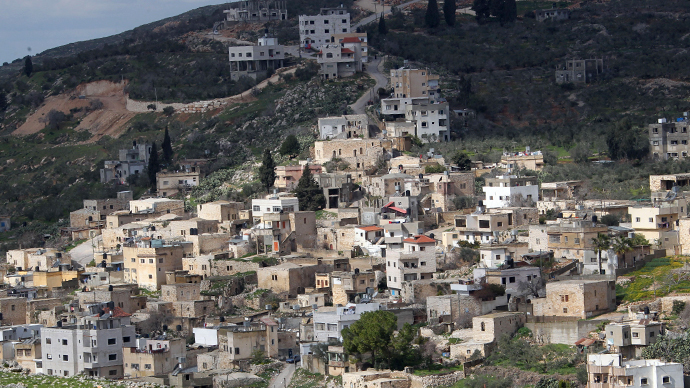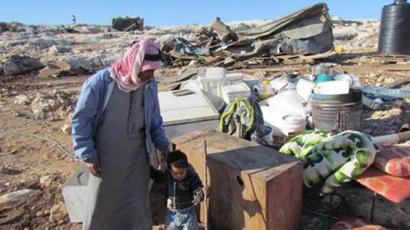Dutch pension giant divests millions from Israeli banks involved in settlement construction

The largest Dutch pension fund company, PGGM, has reportedly chosen to withdraw all its investments from the five largest Israeli banks, whose branches are involved in financing construction in the settlements in the West Bank.
Over the past few months the Dutch pension giant has informed
some of Israel's top banks, such as Bank Hapoalim, Bank Leumi,
Bank Mizrahi-Tefahot, the First International Bank of Israel and
Israel Discount Bank, that their ties with the settlements,
and/or companies involved in construction there, were an obstacle
from the standpoint of international law, a source told Haaretz.
PGGM's stance is based on an International Court of Justice
ruling, which in 2004 concluded that the barrier being built
around the West Bank was illegal and should be pulled down, with
the "security wall" violating the rights of Palestinians.
The Israeli law doesn’t allow local banks to stop providing their
services to parties connected to the settlements, however. Even
if it did, as things stand now it would be highly impractical.
With the situation unlikely to improve in the near future, the
Dutch giant said it had decided to divest from the banks.
According to the Israeli daily, this decision took effect on
January 1.
PGGM manages over 140 billion euros in pension assets on behalf
of five pension funds representing some 2.6 million people and is
one of the leading such companies in the world. Last year the
company said it takes a new step in "responsible
investment". According to PGGM's advanced policy, "the
aspects of people, the environment and society are all included
in investment decisions, and dialogue is sought with companies on
corporate social responsibility."
"PGGM does not invest its clients’ funds in companies that
produce or deal in controversial weapons. Nor are funds invested
in companies that violate human rights or labor rights and who
are unwilling to discuss making improvements," the Dutch
pension fund provider stated on the company's website.
Therefore, investing in the Israeli banks' involved in financing
construction in the settlements in the West Bank would go against
the Dutch company's fastidious policy.
Last year PGGM stopped investing in the world’s largest retailer,
the American supermarket group Walmart. PGGM has repeatedly
spoken against the policy pursued by Walmart in the US, which
restricts employees’ opportunities to organize themselves into
trade unions. Walmart, however, was "not prepared to take PGGM’s
concerns about the company’s tense labor relations in its
domestic market into consideration." In the long run, PGGM added
Walmart to its exclusion list.
It's not the first time a Dutch company has pulled out of Israel.
In December, the Netherland's largest drinking water supplier,
Vitens, decided to cut ties with Israel's national water
corporation, Mekorot, also citing alleged violations of
international law. An Amnesty International 2009 report claimed
that Israel was denying the West Bank and Gaza access to adequate
water supplies through a "discriminatory" control that
enables its own people to consume four times as much as the
Palestinians; Israel argued the shortages are caused by
Palestinians stealing water. Vitens, which is part owned by the
Dutch state, signed the co-operation deal with Mekorot only two
months ago. The company had a near-monopoly on water supplies in
Israel and the Palestinian territories, including Israeli
settlements on the West Bank.
Vitens came to the conclusion that the provision of water in the
Palestinian territories became too politicized. The company's
spokesman said the firm had decided to cut ties because it
"preferred to remain neutral". The decision was
announced during Prime Minister Mark Rutte's official visit to
Israel. Foreign Ministry spokesman called the decision
"absurd", pointing out that the Palestinians will
cooperate with Mekorot, while the Dutch firm has refused.
"It is more than strange that this Dutch company should boycott
an Israeli peer that works with the World Bank on a very
important regional cooperation project, which includes the
Jordanians and Palestinians," Yigal Palmor said. "This
only shows that by caving in to boycott pressures, one makes
absurd decisions that result in a topsy-turvy situation."
Israeli officials believe that the recent series of boycotts is
part of a new policy adopted by the Dutch government, which
allegedly recommends local businesses to avoid commerce with the
controversial settlements.














